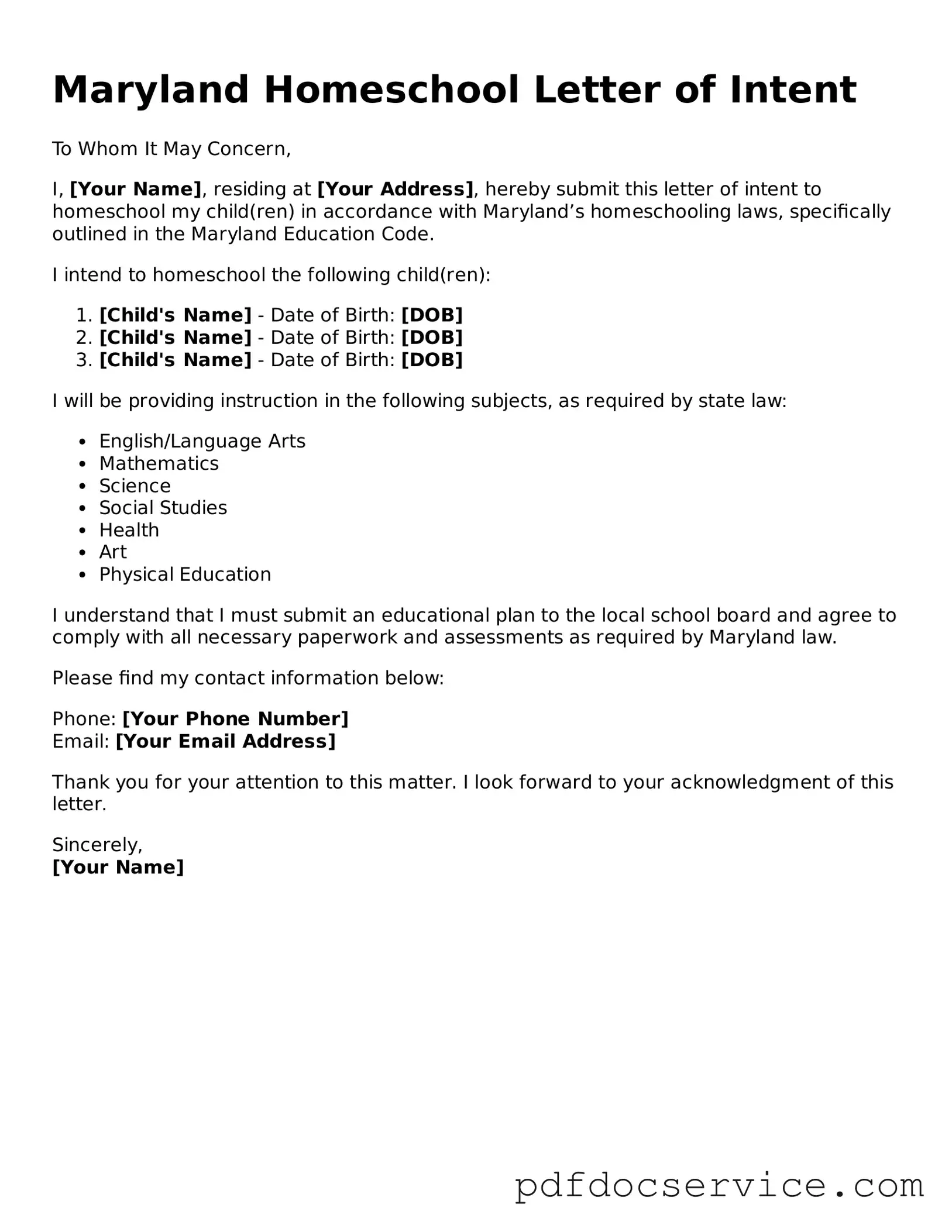What is the Maryland Homeschool Letter of Intent?
The Maryland Homeschool Letter of Intent is a formal document that parents or guardians must submit to the local school board to notify them of their decision to homeschool their child. This letter serves as an official declaration of your intent to provide home-based education, ensuring compliance with state regulations.
Who needs to submit the Letter of Intent?
Any parent or guardian who wishes to homeschool their child in Maryland must submit the Letter of Intent. This requirement applies to children who are of compulsory school age, which is typically between the ages of 5 and 18. If you plan to homeschool multiple children, a separate letter is needed for each child.
When should the Letter of Intent be submitted?
The Letter of Intent should be submitted at the beginning of the homeschooling process. Ideally, it should be sent before the start of the school year or as soon as you decide to withdraw your child from public or private school. Submitting the letter early helps ensure a smooth transition into homeschooling.
The Letter of Intent should include several key pieces of information:
-
Your name and address
-
Your child’s name and date of birth
-
The date you plan to begin homeschooling
-
A statement indicating your intent to provide home education
Including this information helps the local school board process your request efficiently.
While there is no mandated format for the Letter of Intent, it is recommended that you keep it clear and straightforward. A simple, typed or handwritten letter that includes the required information will suffice. Ensure that it is signed and dated to confirm your intent.
Where should the Letter of Intent be sent?
The completed Letter of Intent should be sent to your local school board. Each county in Maryland has its own school board office, and you can typically find contact information on their official website. It’s advisable to send the letter via certified mail or email, if allowed, to have proof of submission.
What happens after I submit the Letter of Intent?
Once the Letter of Intent is submitted, the local school board will acknowledge receipt of your letter. They may provide you with additional information regarding homeschooling requirements, such as curriculum guidelines or assessment procedures. It’s important to stay in communication with them to ensure compliance with state laws.
Can I change my mind after submitting the Letter of Intent?
Yes, you can change your mind about homeschooling after submitting the Letter of Intent. If you decide to enroll your child back into a public or private school, you should notify the school board of your decision. This ensures that all records are updated appropriately and your child’s educational status is clear.
Are there any penalties for not submitting the Letter of Intent?
Failure to submit the Letter of Intent can lead to complications, including potential truancy issues. Maryland law requires that parents notify the local school board of their intent to homeschool. To avoid any legal issues, it is essential to submit the letter in a timely manner.

